Search
Search Results
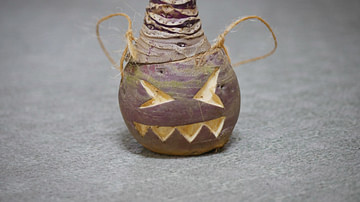
Definition
Samhain
Samhain (pronounced “SOW-in” or “SAH-win”), was a festival celebrated by the ancient Celts halfway between the autumn equinox and the winter solstice. It began at dusk around October 31st and likely lasted three days. Samhain marked the transition...
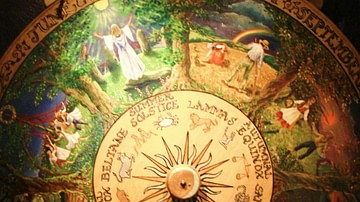
Definition
Wheel of the Year
The Wheel of the Year is a symbol of the eight Sabbats (religious festivals) of Neo-Paganism and the Wicca movement which includes four solar festivals - Winter Solstice, Spring Equinox, Summer Solstice, Fall Equinox - and four seasonal festivals...
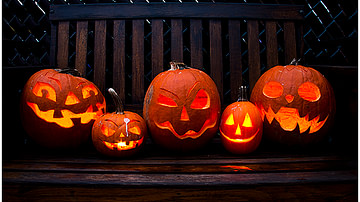
Article
History of Halloween
Halloween is among the oldest traditions in the world as it touches on an essential element of the human condition: the relationship between the living and the dead. The observance evolved from ancient rituals marking the transition from...
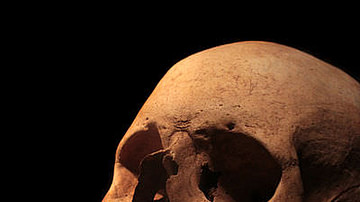
Definition
Ghosts in the Ancient World
A belief in an afterlife was central to every major civilization of the ancient world and this encouraged the recognition of the reality of ghosts as the spirits of the departed who, for one reason or another, either returned from the realm...
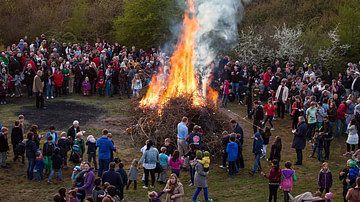
Definition
Walpurgis Night
Walpurgis Night (30 April, annually) is a modern-day European and Scandinavian festival derived from the merging of the ancient pagan celebration of Beltane with the commemoration of the canonization of the Christian Saint Walpurga (l. c...
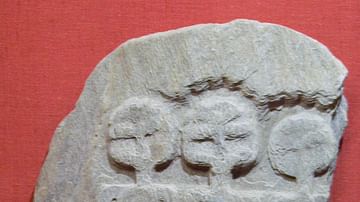
Definition
The Mórrigan
The Mórrigan (also Morrighan, Môr-Riogain or Morrigu), usually referred to with the definite article, was a great warrior-queen goddess in Irish-Celtic mythology. She was most associated with inciting war, then stirring up the...
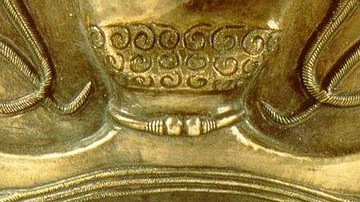
Definition
The Dagda
The Dagda (also Daghda, Daghdha, Dagdae, or Dagda Mór), usually written with the definite article, is one of the most important gods in Irish-Celtic mythology. He appears as a multi-talented warrior-leader of the Tuatha Dé Dannan, invaders...
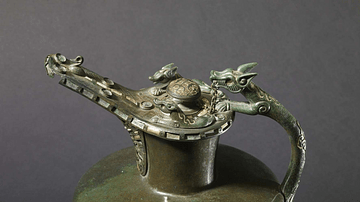
Article
Celtic Feasts
Feasts were an important part of ancient Celtic culture which marked important dates in the calendar and community successes. They were, too, an opportunity to display social status and, of course, eat and drink aplenty. Drunkenness and brawling...
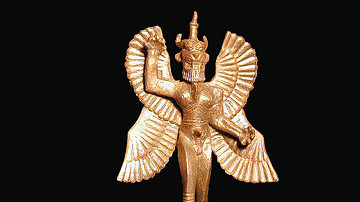
Article
Twelve Menacing & Protective Mythological Figures
The term mythology comes from the Greek words mythos (“story of the people”) and logos (“word”) and so is defined as the spoken (later written) story of a culture. Modern scholars have divided myths into different types which serve many different...
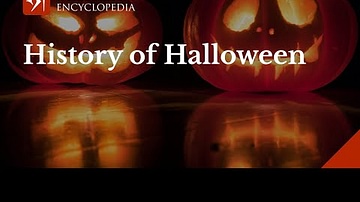
Video
The History of Samhain and Halloween!
The history of Halloween goes back thousands of years to the ancient Celtic festival of Samhain. It was celebrated halfway between the autumnal equinox and the winter solstice, it started on October 31st at dusk, and probably went for three...